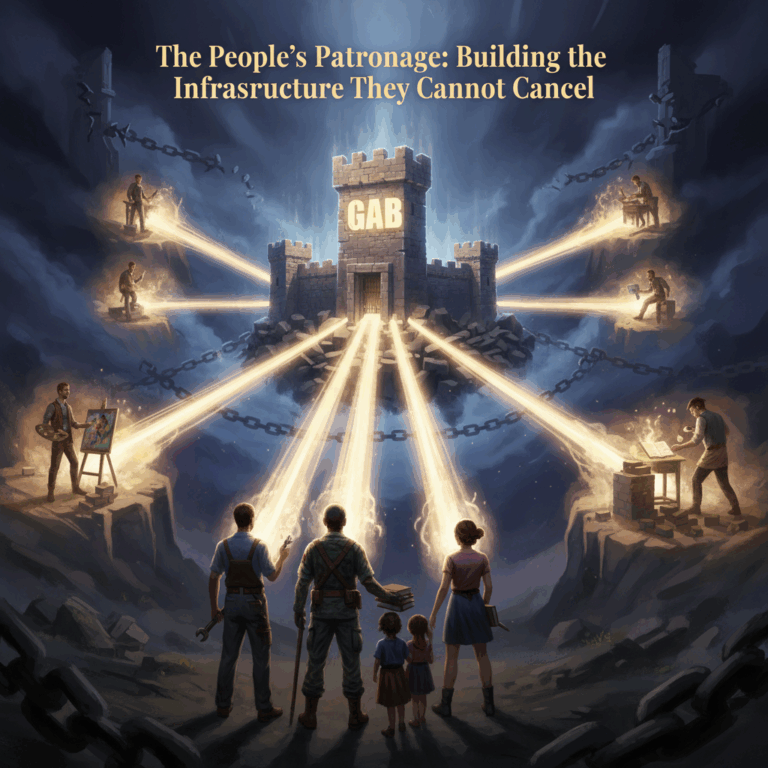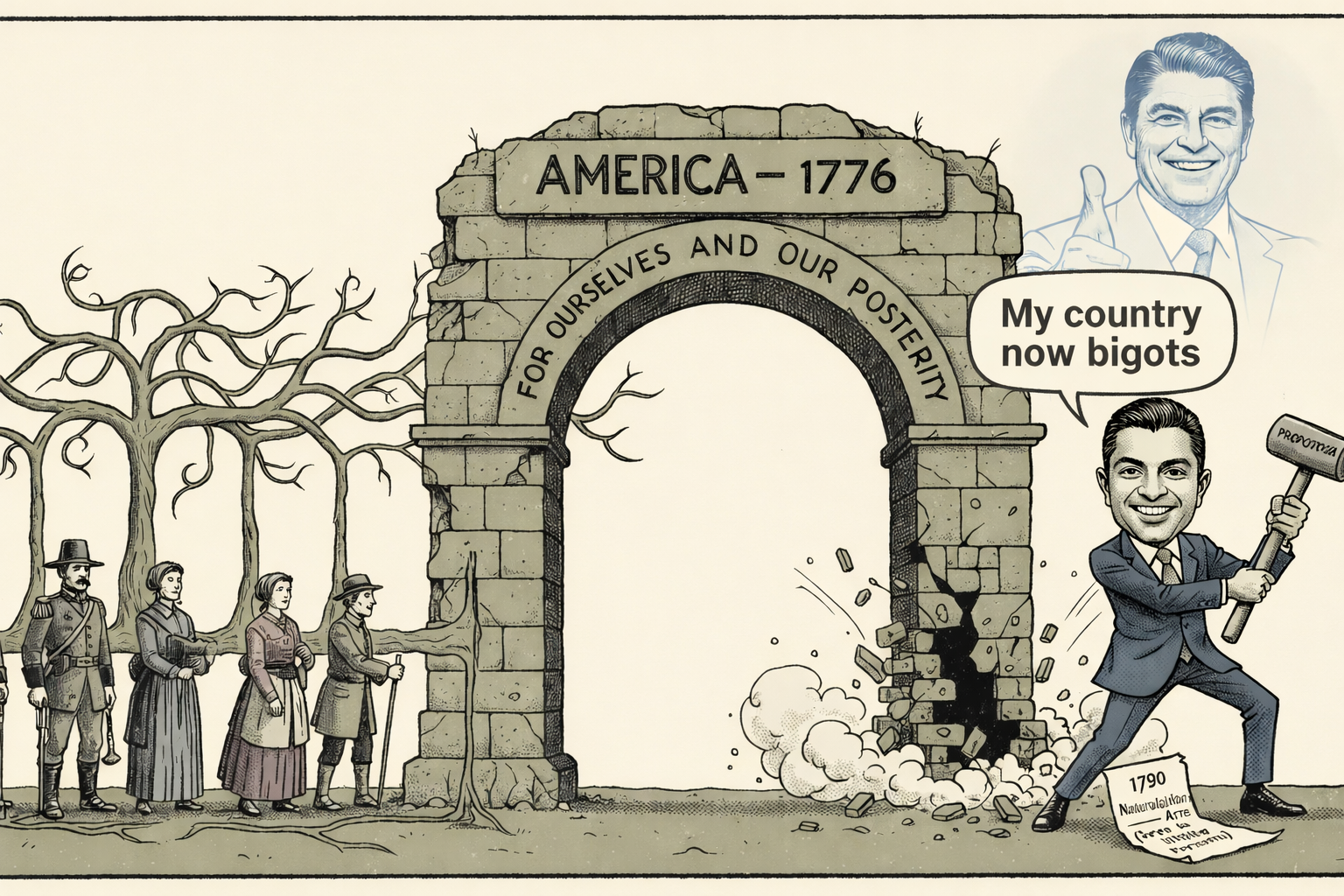America is addicted to the moment. We swipe credit cards for dopamine hits, chase trends that vanish overnight, and measure our lives in viral clips and fleeting “experiences.” We’ve traded the dignity of patience for the chaos of now, mortgaging tomorrow to feed the hunger of today. This isn’t just a financial crisis—it’s a spiritual famine. We’ve forgotten how to plant seeds that take decades to grow, to build altars for children we’ll never meet, to live as if our choices ripple into eternity. The cult of instant gratification has gutted our vision. We scroll, we spend, we sprint—and we’re left with empty wallets, hollow relationships, and a nation gasping for air. But there’s a way out. The Bible, ancient and unflinching, calls us to rebel against this tyranny of the temporary. It thunders with a truth we’ve buried: We were made for more than this.
Our ancestors built cathedrals over centuries. They crossed oceans to carve out futures they wouldn’t live to see. Who is doing things like this today? Debt strangles half the country because we’d rather feel rich today than be free tomorrow. Marriages collapse when the grind gets hard. Politicians sell quick fixes because we’ve lost the stomach for sacrifice. We’ve become a people allergic to the weight of legacy, chasing the shadow of “YOLO” (You Only Live Once) while the substance of life evaporates. This isn’t freedom—it’s a slow-motion suicide of the soul. We need to recover the lost discipline of delayed glory, the holy defiance of living for what outlasts us.
The older generation, raised in an era of unprecedented prosperity, now clings to its wealth with a quiet ruthlessness. Having benefited from affordable education, booming job markets, and pensions that no longer exist, many have chosen to spend their golden years hoarding resources rather than stewarding them. They’ll drop $80k on a luxury RV to tour national parks but balk at helping their children with a down payment on a first home. They’ll lecture about “financial responsibility” while leveraging reverse mortgages to siphon equity from family homes, leaving nothing but debt for heirs. This isn’t frugality—it’s a betrayal of the very intergenerational compact that built their comfort. By refusing to pass on tangible blessings—whether wealth, wisdom, or a stable nation—they’ve pulled the ladder up behind them, then blamed younger generations for not climbing faster.
Yet the younger generations, drowning in student debt and gig-economy precarity, have responded with a dangerous fatalism. “If the system’s rigged, why play the game?” They’ll drop $8 on artisanal coffee daily but shrug at saving for retirement, joking, “I’ll just work until I die.” They’ll chase bucket-list experiences and “self-care” splurges while ignoring the storm clouds of entitlement-program insolvency and their own personal pile of debt. Social media fuels this, turning life into a highlight reel of curated moments—while 401(k)s gather dust and credit card balances balloon. This isn’t living “in the moment”; it’s a surrender to despair disguised as liberation. When the future feels like a collapsing tunnel, hedonism becomes the anesthesia.
Together, these postures form a doom loop. The older generation, fixated on self-preservation, drain reservoirs of generational wealth that took lifetimes to build. Meanwhile, younger adults, convinced there’s no reservoir left to fill, puncture the pipes altogether. Families fracture over inheritances; communities starve for long-term investment; politicians kick fiscal time bombs down the road. The result? A society with no one planting orchards—just two generations arguing over who gets the last ripe apple. Fixing this demands a moral revolution: the older generation must recover the lost art of legacy, viewing wealth as a bridge, not a bunker. The young must reject the lie that foresight is futile, trading cynicism for gritty, stubborn hope. Without both, we’ll keep racing toward the cliff all wondering who killed the horizon.
The Bible is a manifesto of radical long-term vision. Joseph didn’t hoard grain for a week—he stockpiled it for seven years to save nations from starvation. Abraham followed God into the unknown, trusting a promise that would unfold over millennia. Jesus spoke of vineyards and vineyards and fig trees, of investments that compound across generations. Scripture doesn’t whisper about patience—it roars. It dares us to see time as God’s gift, not our enemy. Every parable of sowing and reaping, every prophet who stood alone for truth, every martyr who chose death over compromise shouts this: There is sacred power in what grows slowly. The Kingdom isn’t built by the hurried, but by the steadfast—those who dig wells in deserts they’ll never drink from, who plant oaks in storms they’ll never take shade under.
Consider Noah, hammering a monstrous ark for a flood no one believed would come. Imagine the jeers, the mockery, the relentless pressure to quit. He labored for a century, a laughingstock to neighbors who drowned clutching their distractions. Or the prophet Daniel, who refused to bend to Babylon’s culture of compromise, praying toward Jerusalem three times a day as an old man, his faithfulness still shaping nations centuries later. These weren’t optimists—they were obstinate, God-drunk realists who bet their lives on a Story bigger than their lifespan.
Even Jesus modeled this. He spent thirty years in obscurity—a carpenter, not a celebrity—before three years of ministry that changed everything. He healed beggars who’d die again, fed crowds who’d betray Him, and poured His life into twelve men who fled at the first sign of real danger. Why? Because He saw the harvest: billions yet unborn, grafted into His Kingdom through those shaky, stumbling disciples. He traded immediate relevance for eternal impact.
This is our charge: Stop living like an expiration date stamps your forehead. You are eternal. Your choices echo. That dollar you blew on trash? It could’ve paid down your debt. That hour you lost to mindless noise? It could’ve prayed down revival on your grandchildren. The church isn’t a buffet for your comfort—it’s an army training for a war that outlives us all. Imagine families saving to uplift their unborn great-grandchildren. Imagine businesses that prioritize pensions over profit margins. Imagine politicians passing laws that won’t win votes but will save cities. This is the path. Fight for it.
But how? Start by smashing the idols of now. Replace “What’s in it for me?” with “What’s in it for them?”—the “them” being the faces you’ll never see this side of Heaven. Train your children to view money as a seed, not a snack. Teach them to tithe not just from their allowance, but from their inheritance. Fight for a marriage that models grit, not just romance, so your great-grandkids inherit a blueprint for covenant, not chaos. Build a business that funds your family long after you’re gone.
And when the grind feels futile—when the savings account grows too slow, the prodigal child still strays, or the culture keeps spinning madder—remember the martyrs. They died singing, their blood watering fields of faith we now walk in. Their sacrifice wasn’t for applause but for a reward they’d only claim in eternity. This is the muscle memory we’ve lost: suffering with purpose, waiting with expectation, laboring with joy for a timeline we won’t control.
The world will call you a fool. Let them. Let them chase their shadows while you build altars. Let them binge their distractions while you kneel in intercession for generations unborn. Let them sell their souls for relevance while you etch truth into the walls of eternity. You are not here to be remembered. You are here to be faithful.
The fire of eternity burns in your bones. Don’t let the trivial consume you. Live like you’ll live forever. Because you will.





